International
House of Commons receives bill giving King powers to strip Andrew dukedom

A law which would allow King Charles III to formally strip Prince Andrew of his dukedom is being introduced in the House of Commons on Wednesday.
The prince announced that he would stop using his Duke of York title to avoid distracting from the work of the royal family, but an act of parliament would be required to formally remove the dukedom.
York Central member of parliament (MP) Rachael Maskell has set out legislation which would grant Charles the power to remove titles.
The proposed new law would give the monarch the power to remove titles on his own initiative, following a recommendation of a joint committee of parliament, or at the request of the person who holds the title.
According to Maskell, “it is time for parliament to act so that it can, or the monarch can, remove titles.
“The Duke of York title may no longer be being used by its holder, but it has not been removed.
“My short bill, The Removal of Titles Bill, will fix this; I hope it can now be supported by parliament.”
The bill stands little chance of becoming law without government support and ministers have resisted calls to act, insisting such decisions are for the king.
Maskell had the Labour whip suspended in July after being a key figure in the revolt over welfare reforms.
Once the bill is published, Maskell said she will send copies of it to Buckingham Palace and to the prime minister in an effort to build support.
“My hope is that there will be discussions between the palace and parliament to determine the necessity of this and how it can be achieved,” she said.
She told the PA news agency the legislation could have wider implications beyond Prince Andrew, including allowing rogue members of the House of Lords to be stripped of their peerages.
“It’s not targeted at this event, obviously it’s triggered by this event, but it would sit on the statute to be used for any such future occasion,” she said.
“There could be reasons why parliament could wish to trigger such measures and it does include a whole range of titles.
“We’ve researched into this, it will include peerages, it will include, obviously, baronets and earls and dukes and all of that and then it will be for princes and princesses as well.
“So all titles which are given, it will be able to be removed.”
Maskell said the legislation could be passed very quickly if time was given to it in parliament.
“This is a neat, easy way of just tweaking the law,” she said.
The titles and honours Andrew will no longer use include his wedding day titles, Duke of York, the Earl of Inverness and Baron Killyleagh, his knighthood as a Knight Grand Cross of the Royal Victorian Order (GCVO) and his garter role as a Royal Knight Companion of the Most Noble Order of the Garter.
Legislation has been used before to strip titles, notably descendants of Queen Victoria and Prince Albert who were on the German side in the First World War.
The Titles Deprivation Act 1917 was used two years later to strip the titles from Leopold Charles, duke of Albany, Earl of Clarence and Baron Arklow
Also stripped of their titles include; Ernest Augustus, duke of Cumberland and Teviotdale, earl of Armagh; Ernest Augustus, duke of Brunswick, prince of Great Britain and Ireland; and Henry, viscount taaffe of Corren and baron of Ballymote.
The law remains in force but as it refers specifically to the First World War, its provisions are unlikely to be relevant today.
A YouGov poll has suggested that four out of five Britons want Prince Andrew to be formally stripped of his dukedom.
The survey showed that 63 per cent of nearly 6,700 adults questioned were “strongly” in favour of formal removal of the dukedom and 17 per cent “somewhat” supporting the idea.
However, 6 per cent were opposed to it, while 4 per cent somewhat, 2 per cent strongly and 14 per cent did not know.
International
Madagascar military seizes power after president’s impeachment
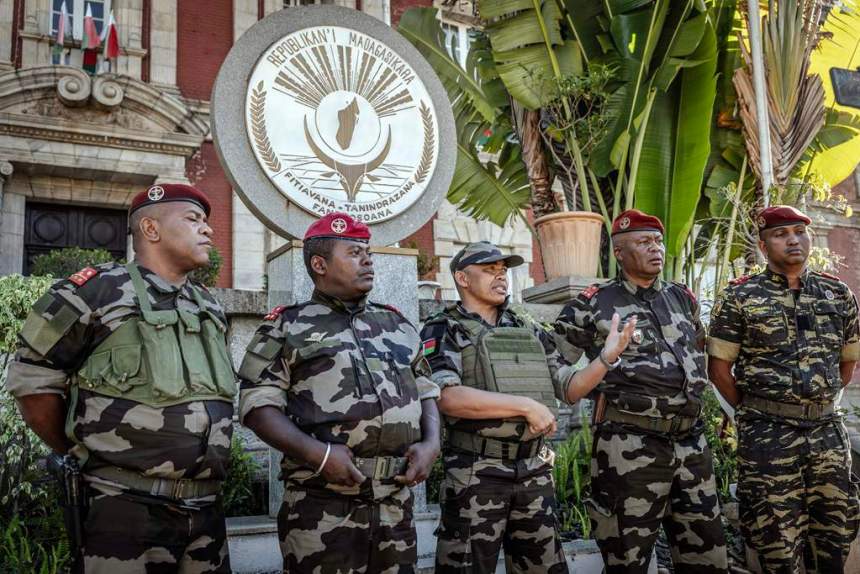
An elite military unit told AFP on Tuesday it had taken power in Madagascar after the national assembly voted to impeach President Andry Rajoelina for desertion of duty.
The 51-year-old president had refused growing demands to step down, going into hiding after weeks of anti-government street demonstrations in the island nation.
‘We have taken power’, Colonel Michael Randrianirina, head of the CAPSAT military unit, told AFP after reading out a statement at a government building in the capital.
The unit will set up a committee composed of officers from the army, gendarmerie, and national police, he said.
‘Perhaps in time it will include senior civilian advisers. It is this committee that will carry out the work of the presidency’, Randrianirina said in his statement.
‘At the same time, after a few days, we will set up a civilian government’, he said.
The announcement came minutes after the lower house of parliament voted to impeach Rajoelina in a session dismissed by the presidency as “devoid of any legal basis.”
Just hours earlier, Rajoelina had dissolved the national assembly by decree to block the session.
The impeachment passed with 130 votes in favour—well above the two-thirds constitutional threshold required in the 163-member chamber.
The High Constitutional Court has to validate the vote.
Rajoelina, a former mayor of the capital Antananarivo, said late Monday he was sheltering in a “safe space” after attempts on his life, without revealing his location.
The protests began on September 25 and reached a pivotal point at the weekend when mutinous soldiers and security forces, including CAPSAT, joined the demonstrators and called for the president and other government ministers to step down.
International
Nobel Prize in chemistry goes to three scientiss for Harry Potter-like work in molecular architecture
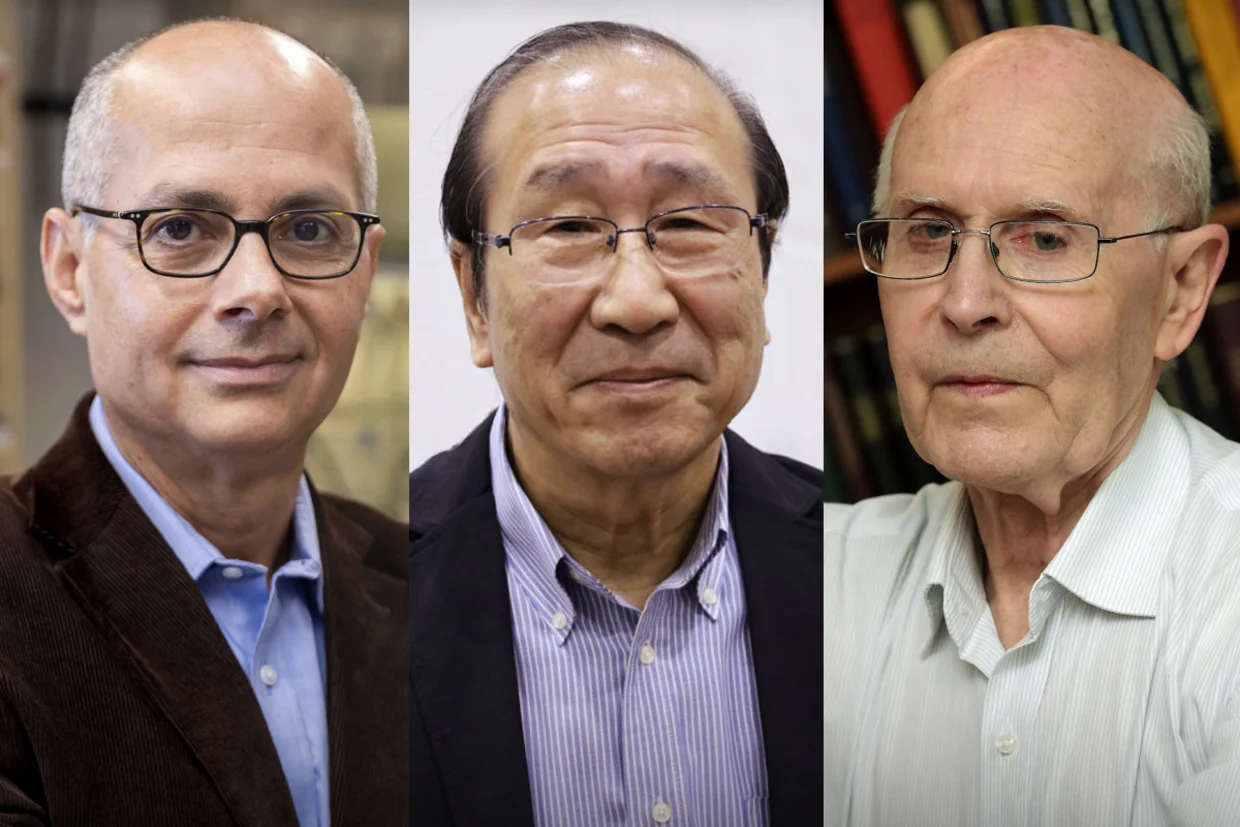
A trio of scientists have been awarded the 2025 Nobel Prize in Chemistry for developing Metal-Organic Frameworks (MOFs), a few revolutionary form of molecular architecture. The Nobel Committee likened the structures which pack a vast amount of internal space into tiny materials—to Hermione Granger’s magically enlarged handbag from the Harry Potter novels.
Susumu Kitagawa, Richard Robson, and Omar Yaghi will share the prize for their groundbreaking discoveries. Their work, announced Wednesday in Stockholm, Sweden, has led to completely new materials with the potential to tackle some of the planet’s most pressing problems, including climate change.
Heiner Linke, chair of the chemistry committee, explained the significance of MOFs, stating that the laureates’ materials can “store huge amounts of gas in a tiny volume.” He compared them to a hotel, where huge groups of molecules can act as ‘guests,’ entering and exiting the material’s cavities.
The committee specifically praised MOFs for their versatility, noting they “can be used to harvest water from desert air, capture carbon dioxide, store toxic gases or catalyse chemical reactions.”
Richard Robson (University of Melbourne, Australia) began the work in the 1970s. He theorized that linking different types of molecules rather than just individual atoms could create new types of materials. By the 1980s, Robson showed his materials self-assembled into a regular, crystalline structure, like a diamond, but with huge internal cavities instead of a compact structure.
Susumu Kitagawa (Kyoto University, Japan) built on Robson’s foundation. Driven by a desire to find “the usefulness of useless” materials, he began researching porous molecular structures and presented his first one in 1992. His major breakthrough came in 1997 with a new molecule that could specifically absorb and release gases like methane, nitrogen, and oxygen.
Omar Yaghi (University of California, Berkeley), who moved to the U.S. from Jordan, utilized their research to develop a completely new framework, MOF-5, which the committee described as a “classic” in the field. This structure is remarkably stable, able to be heated to 570∘F (300∘C) without collapsing.
Professor Kim Jelfs noted that the sheer internal surface area of MOFs is astonishing: “One gram of a MOF material can have the same surface area inside its pores as a football pitch.”
The research by the laureates has a vast array of real-world uses like MOFs can combat climate change by capturing carbon dioxide from the atmosphere and also Yaghi’s group successfully used their MOF material to suck water from the desert air in Arizona. The material captures water vapor overnight and releases it when heated by the sun.
Environmental Cleanup: Other potential applications include removing “forever chemicals” from water and breaking down traces of pharmaceuticals in the environment.
The prize carries a cash award of 11 million Swedish kronor (approximately $1 million).
International
Former DRC president Joseph Kabila sentenced to death in absentia
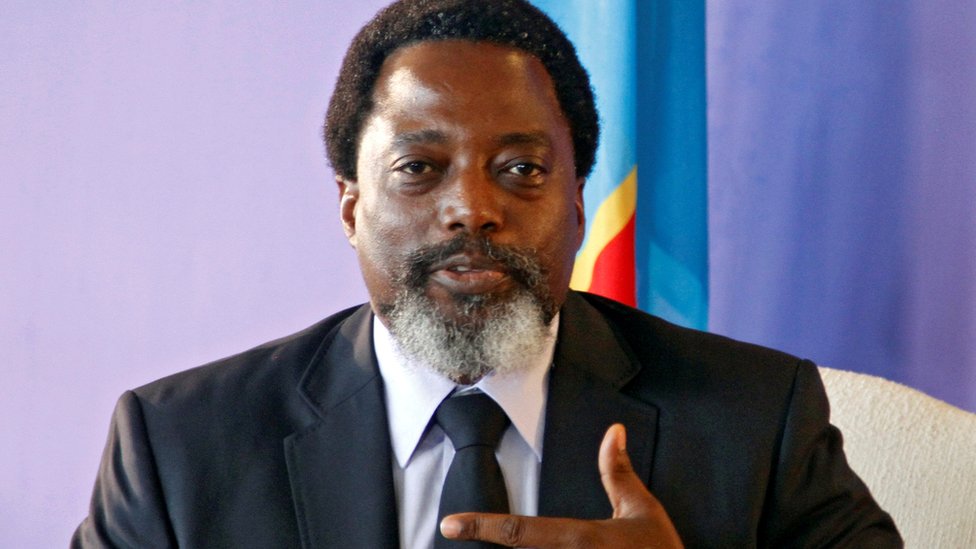
A military court in the Democratic Republic of the Congo has sentenced the country’s former president, Joseph Kabila, to de@th in absentia after convicting him of war crimes, treason, and crimes against humanity.
The case stems from his alleged role in backing the advance of M23 rebels supported by Rwanda in DRC’s volatile eastern provinces. Kabila, who led the country from 2001 to 2019, has denied wrongdoing and said the judiciary had been politicised.
Lt Gen Joseph Mutombo Katalayi, presiding over the tribunal in Kinshasa, said Kabila had been found guilty of charges that included murder, sexual assault, torture, and insurrection.
Kabila did not attend the trial and was not represented by legal counsel. Neither he nor his representatives were immediately available for comment. His whereabouts were not immediately known.
“In applying article 7 of the military penal code,[the court] imposes a single sentence, namely the most severe one, which is the death penalty,” Katalayi said while delivering the verdict.
Kabila was also ordered to pay about $50bn (£36bn) in damages to the state and victims.
Kabila spent almost 20 years in power and stepped down only after de@dly protests against him. He has been living mostly in South Africa since 2023, but appeared in the rebel-held city of Goma in eastern DRC in May.
He entered into an awkward power-sharing deal with his successor, Felix Tshisekedi, but their relationship soon soured.
As M23 rebels marched on eastern DRC’s second-largest city of Bukavu in February, Tshisekedi told the Munich security conference that Kabila had sponsored the insurgency.
M23 now controls much of North Kivu and South Kivu provinces. The fighting has killed thousands of people and displaced hundreds of thousands more this year. The two sides signed a US-brokered peace agreement in June, but they are both reinforcing their positions and blaming one another for flouting the accord, sources have said
-
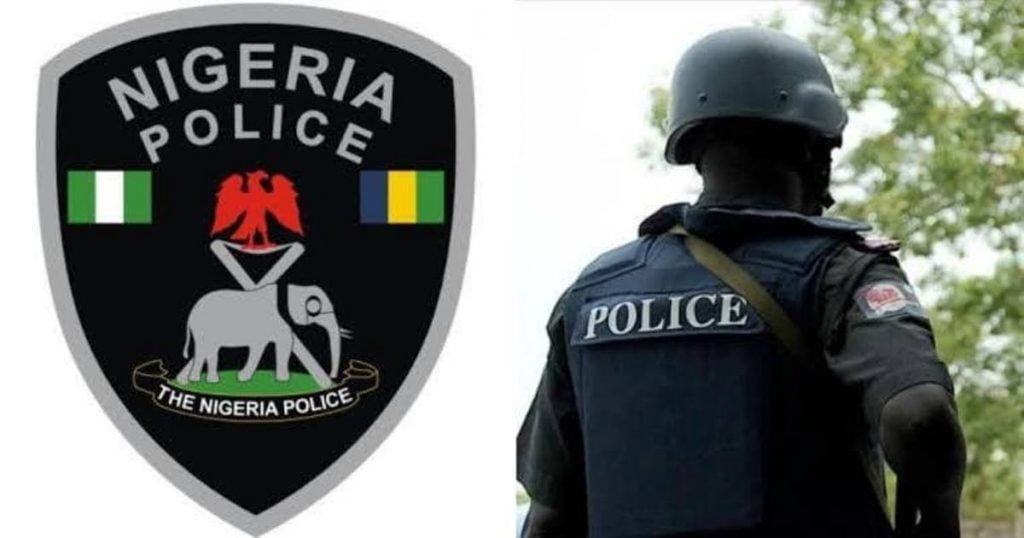
 News5 days ago
News5 days agoLagos police recovers 75 mobile phones and 5 laptops abandoned by fleeing suspects during routine patrol in Ikeja
-

 News5 days ago
News5 days agoImo Police launch investigation into viral video of its officers allegedly involved in cult activities
-

 News4 days ago
News4 days agoOyebanji is my Greatest Achievement, says Fayemi
-

 News3 days ago
News3 days agoEFCC, NIS, NCoS complete deportation of 192 foreigners convicted for Cyber-terrorism in Lagos
-
News3 days ago
Notorious AAUA cult leader arrested during secret meeting on campus
-

 Entertainment4 days ago
Entertainment4 days agoI’m nothing in Ned Nwoko’s house — Regina Daniels alleges domestic abuse
-
News1 day ago
Lagos govt seals church, several buildings over noise, air pollution
-

 Sports5 days ago
Sports5 days agoFULL LIST: Ajibade, Okoronkwo Nominated For CAF Women’s Player Of The Year award
-
News3 days ago
Army troops recover arms, ammunition in Plateau
-
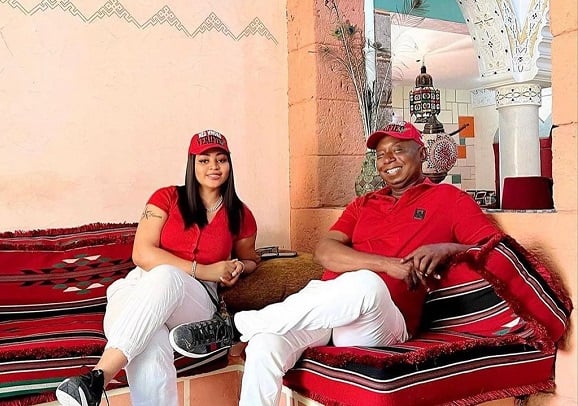
 Entertainment3 days ago
Entertainment3 days agoSenator Nwoko finally opens up, accuses Regina Daniels of drug abuse
-

 News5 days ago
News5 days agoPolice arrest five members of Inter-State syndicate of fake officers in Kano






